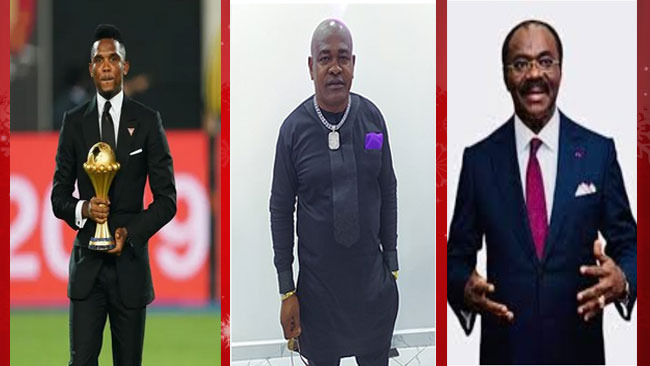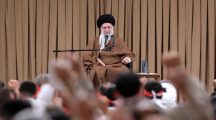17, January 2017
UN, EU reassure support for Iran nuclear deal 0
The European Union (EU) and the United Nations (UN) have both reaffirmed their support for the Iran nuclear deal on the first anniversary of the accord’s implementation. The deal, officially titled the Joint Comprehensive Plan of Action (JCPOA), was reached between Iran on the one side and the US, the UK, France, Russia, China, and Germany on the other in July 2015. It began being implemented on January 16, 2016 and terminated nuclear-related sanctions against Iran in return for certain limits on the Iranian nuclear program.
During the course of the negotiations that resulted in the deal, the EU acted as coordinator for the negotiating parties and, together with the UN, hosted the talks. In a statement on Monday, the EU’s top diplomat, Federica Mogherini, once again reaffirmed the bloc’s support for the deal in the face of potential threats from the future US administration to undermine it. “The full and effective implementation throughout the entire lifetime of the JCPOA remains essential,” said Mogherini in a statement. “The EU has clearly affirmed its resolute commitment to this objective.”
She said the bloc “will continue to work hand in hand with all those willing to contribute to its full implementation and in achieving the objectives which brought us together.” There has been concern that the incoming administration of US President-elect Donald Trump, a former businessman and a self-admitted non-politician, may breach the deal or stop implementing US commitments under it altogether. Trump has previously threatened to “tear up” the deal. Throughout her Monday statement, Mogherini, the top EU diplomat, pointed to the merits and strengths of the deal in what sometimes seemed to be directed at an audience of one.
She said the agreement “is working for all” and now belonged to the entire international community. “The JCPOA is a multilateral endeavour, achieved through diplomatic means and endorsed by a United Nations Security Council resolution. It was born out of the efforts of the E3/EU+3 and Iran, but it now belongs to the entire international community. The JCPOA provides benefits for all and creates opportunities for improved regional cooperation that should be seized by all,” she said.
She was referring to Security Council Resolution 2231 (2015), which unanimously endorsed the JCPOA on July 20, 2015. She also highlighted that, “Iran has delivered on its nuclear-related commitments as confirmed by the four reports issued by the International Atomic Energy Agency.” The Agency has taken up the task of monitoring the technical implementation of the Iran deal. Also on Monday, Farhan Haq, the deputy spokesman for UN Secretary General Antonio Guterres, reassured the world body’s support for the accord in his office’s daily press briefing.
He praised the first anniversary of the JCPOA’s implementation as “a significant milestone in the historic agreement.” “The United Nations shall continue to support the implementation of the JCPOA, in accordance with resolution 2231 (2015) and other relevant decisions of the Security Council,” he said.
All the other parties to the JCPOA, including the outgoing US administration, Russia, and China, have also already stressed the need to sustain the deal amid the Trump threats. Meanwhile, Trump, in a shift from his usual rhetoric of lambasting the Iran deal, has refused to say what policy he would want to take regarding it, also admitting that he is “not a politician.”
“Well, I don’t want to say what I’m gonna do with the Iran deal. I just don’t want to play the cards. I mean, look, I’m not a politician, I don’t go out and say, ‘I’m gonna do this’ — I’m gonna do, I gotta do what I gotta do,” he told the British daily The Times on Sunday.
Trump has flip-flopped on policy issues before, too.
Russia sees no reason for non-performance
Meanwhile, Russian Deputy Foreign Minister Sergei Ryabkov, who was his country’s lead negotiator in the talks over the Iran deal, also stressed that the JCPOA was an important and constructive agreement and that Russia would remain committed to it.
Speaking at a UN roundtable on the one-year anniversary of the deal’s implementation, Ryabkov said Russia saw no grounds for any failure to fully implement the deal and downplayed the rhetoric by Trump, TASS reported.
He said very little was known about the “approaches of the next US administration to this issue and the foreign policy agenda in general.”
He said that, while Moscow was studying the public statements by Trump’s advisers and cabinet nominees made during the US Senate hearings, he saw “no signs… that a completely new situation will occur.”
Presstv

































21, January 2017
Amnesty International calls for urgent access and release of detained Consortium leaders 0
CAMEROON: ARRESTS AND CIVIL SOCIETY BANS RISK INFLAMING TENSIONS IN ENGLISH-SPEAKING REGIONS
20 January 2017, 15:56 UTC
The Cameroonian authorities must immediately and unconditionally release two civil society leaders arrested in the English-speaking part of the country, and lift the ban imposed on their organization, Amnesty International said today.
On 17 January the Minister of Territorial Administration banned the activities of the Southern Cameroon National Council (SCNC) and the Cameroon Anglophone Civil Society Consortium (CACSC). The president of the CACSC, Barrister Nkongho Felix Agbor-Balla, and its Secretary General, Dr. Fontem Aforteka’a Neba, were arrested, sparking protests in the southwest city of Buea.
On the same day both Agbor-Balla and Dr. Fontem Neba had signed a statement calling for protest activities to be carried out without violence.
“These two men have been arrested solely for the peaceful exercise of their right to freedom of expression. This flagrant disregard for basic rights risks inflaming an already tense situation in the English-speaking region of the country and is clearly an attempt to muzzle dissent,” said Ilaria Allegrozzi, Amnesty International Central Africa Researcher.
According to the Minister of Territorial Administration, “all activities, meetings and demonstrations initiated or promoted by the Southern Cameroons National Council (SCNC), the Cameroon Anglophone Civil Society Consortium (CACSC), any other related groups with similar objectives or by anyone partisan to these groups, are hereby prohibited all over the national territory”.
The government has accused the two groups of supporting a series of demonstrations that began in late October 2016 across several cities in the English-speaking region of Cameroon. The protesters are calling, among other things, for an end to the use of French in courts and schools. This week a “ghost town” strike – where citizens are asked to remain at home – was called in the regions’ main cities.
“This worrying pattern of arbitrary arrests, detention and harassment of civil society members is entirely at odds with the international human rights law and standards that Cameroon has committed to uphold,” said Ilaria Allegrozzi.
In December, at least two unarmed protesters were killed in Bamenda, the largest city in the English-speaking region, when security forces used live ammunition to disperse a protest.
For more information please call Amnesty International’s press office in Dakar, Senegal, +221 77 658 62 27 or +221 33 869 82 31; Email: sadibou.marong@amnesty.org